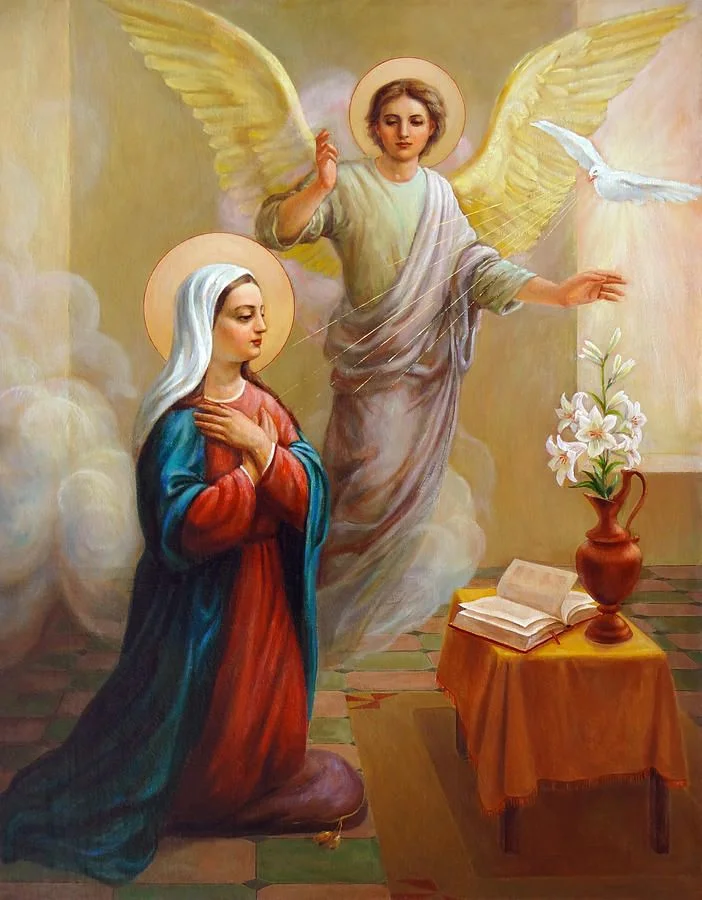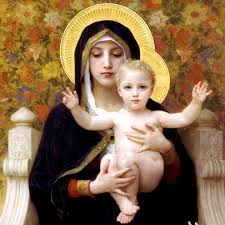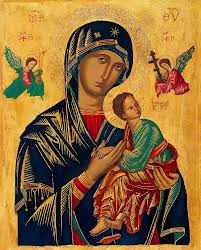Mary's Queenship: A Christocentric Examination of Marian Theology in the Catholic Tradition
Introduction
The Virgin Mary occupies a position of singular veneration within Roman Catholicism. This article undertakes a comprehensive theological analysis of Mary's elevated status, focusing particularly on the concept of her queenship. We will explore the scriptural foundations, doctrinal evolution, and spiritual implications of Marian queenship, employing established theological frameworks. Key concepts, including Marian doctrines (Immaculate Conception, Perpetual Virginity, Assumption), Christology (the study of Jesus Christ), and intercessory prayer, will be defined and applied within a historical and systematic theological context. The analysis will utilize systematic theology, a method that seeks to synthesize biblical teachings, tradition, and reason to build a coherent and comprehensive understanding of faith. This systematic approach contrasts with other methods, such as historical theology, which focuses primarily on the historical development of doctrine, or biblical theology, which derives its understanding exclusively from scripture.
1. The Theotokos and the Incarnation: Foundational Christology
The Council of Ephesus (431 CE) formally declared Mary "Theotokos," meaning "God-bearer." This christological affirmation, central to understanding Mary's unique role, underscores her participation in the Incarnation. The council’s decision exemplifies the application of conciliar processes—a vital mechanism within the Catholic Church for clarifying and solidifying theological tenets—in resolving disputes and establishing doctrinal consensus. This process highlights the importance of reasoned discourse and scriptural exegesis in the formulation of official Church teaching. Applying this to modern contexts, the principle of conciliarity emphasizes the need for collaborative, well-reasoned theological dialogue in contemporary discussions of faith and doctrine.
2. Perpetual Virginity: A Theological Interpretation of Scriptural Texts
The doctrine of Mary's perpetual virginity, while not explicitly detailed in all biblical passages, is a deeply held belief within the Catholic Church. This belief signifies her purity and holiness, emphasizing her role as the chosen instrument of God's Incarnation. The application of this doctrine demonstrates how theological tradition and hermeneutical interpretation build upon and extend scriptural accounts. Different interpretive lenses—some emphasizing the literal understanding of Matthew 1:25, others focusing on symbolic interpretations of the text—illustrate the complexities of scriptural interpretation and its role in shaping doctrinal developments. This necessitates a robust understanding of hermeneutical principles to navigate diverse interpretations within the Church.
3. Mary as the New Eve: Typological Interpretation and Redemption
The comparison of Mary to Eve offers a powerful typological lens for understanding her role in salvation history. Where Eve's disobedience initiated the Fall, Mary's obedience at the Annunciation, signified by her "fiat," reversed this trajectory through the Incarnation of Christ. This application of typology, an interpretive method identifying parallels between Old and New Testament figures, underscores the redemptive work of Christ, with Mary acting as a pivotal mediating figure. Understanding this typology requires a deep familiarity with both Old and New Testament narratives, allowing for a nuanced appreciation of the connections and contrasts between Eve and Mary. This typological analysis provides a rich framework for understanding the narrative arc of salvation history.
4. The Assumption: Eschatological Implications and Marian Glory
The dogma of the Assumption (1950), asserting Mary's bodily ascension into heaven, is rooted in early Christian tradition and finds resonance with the resurrection of Christ. This doctrine elevates Mary to unparalleled glory and prefigures the ultimate destiny of all believers. This illustrates how theological reflection, guided by tradition and scripture, leads to the development of new doctrines that further elucidate the Church's understanding of faith. The declaration of this dogma by papal authority exemplifies the hierarchical structure of the Catholic Church and its role in defining and clarifying theological concepts to foster doctrinal unity and consistency.
5. Marian Queenship: Intercession and Advocacy
The title "Queen of Heaven and Earth" reflects Mary's exalted position and her role as intercessor for humanity. This builds upon the understanding of Mary's participation in the economy of salvation. The analogy of a queen interceding for her people offers a relatable framework for comprehending Mary's role as advocate before her Son. While the analogy provides accessibility, it does not diminish the transcendent nature of her queenship; instead, it exemplifies the creative application of theological communication strategies to convey complex truths effectively. This highlights the importance of effective communication in theological discourse.
6. Marian Piety and the Saints: A Sociological and Anthropological Perspective
The profound devotion to Mary demonstrated by countless saints underscores her impact on the spiritual lives of believers. This fervent piety offers a rich sociological and anthropological lens through which to understand the development and impact of Marian theology within the context of religious practice. Analyzing the lived experiences and expressions of faith of these saints provides valuable insight into the cultural and historical contexts shaping Marian devotion and its enduring influence on individual piety and communal worship. This approach demonstrates the application of interdisciplinary methodologies to theological inquiry.
7. Mary as Spiritual Mother: A Bond of Spiritual Maternity
Jesus' entrustment of Mary to John at the crucifixion ("Woman, behold your son!… Behold your mother!") establishes her spiritual motherhood extending to all believers. This maternal role fosters a deep spiritual connection between Mary and the faithful. This interpretation, born from careful biblical exegesis and theological reflection, expands our understanding of Mary’s enduring role in the lives of believers. This concept of spiritual motherhood has profound implications for understanding the relationship between the Church and its members.
8. Intercessory Power: Scriptural Examples and Theological Significance
The miracle at Cana, where Mary intercedes with Jesus, serves as a powerful example of her intercessory role. This event provides a model for the faithful, highlighting the efficacy of prayer and the importance of seeking Mary's intercession. The use of this scriptural narrative reinforces the importance of applying concrete biblical examples to illustrate abstract theological concepts and making them more accessible and relatable for believers.
Conclusion and Recommendations
The Catholic understanding of Mary's elevated status rests firmly upon scripture, tradition, and reasoned theological discourse. This analysis has explored the multifaceted application of various theological concepts and interpretive methods in understanding her queenship. Future research could benefit from comparative studies examining diverse expressions of Marian devotion across various cultures and Christian denominations. This comparative approach will illuminate the nuanced interpretations and adaptations of Marian theology throughout history. Additionally, a deeper investigation into the efficacy, psychological impact, and theological implications of Mary's intercessory role within the context of prayer and faith would yield valuable insights. These research endeavors require a sensitive and nuanced approach, balancing theological precision with pastoral considerations.
Reader Pool:
How can a comprehensive understanding of Mary's role within Catholic theology contribute to a more nuanced and effective approach to contemporary pastoral care and spiritual direction?






No comments yet. Be the first to share your thoughts!